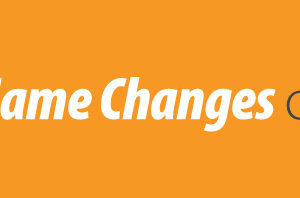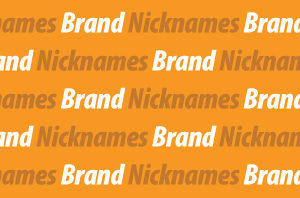
Before jumping into brand name development, it’s important to understand the different types of names. Why? Because without this knowledge, there is a tendency only consider certain types of names. In addition, mapping competitor’s name types supports positioning strategy.
IDeas BIG categorizes names into three (3) basic types:
- Literal
- Synthesized
- Metaphorical.
Please note that hybrids or combinations of name types are not uncommon.
Literal Names
Most names fall into literal name types. Literal names describe a company or product with key words or terms common to the category. Another type of literal name is an acronym based on keywords or terms. Yet another type of literal name is when companies use the founder’s name. Examples of literal names include Computer Associates, IBM and (Michael) Dell respectively. In competitive analysis, most names uncovered will fall into literal name types. Positives of literal names include ease of understanding, and in the case of a founder’s name, trademark and domain name availability. Negatives are lack of differentiation (common keywords), and lack of depth or meaning.
Synthesized Names
The next naming type, synthesized names, are made-up words, most often the combination of two words or key words. Alternatively, synthesized names can be derived from Latin or Greek roots, prefixes or suffixes. Finally, synthesized names can be made-up words that are based on alliteration (repeated sounds) or rhyming. Examples of synthesized names include Microsoft (combo), Oracle (Greek) and Google (alliteration/rhyming).
Synthesized names can sound important or intelligent, and usually obtain trademark and domain name availability. Significant negatives include difficult understanding, and often a lack of meaning or emotion. As a result, synthesized names may require significant marketing spending to be successful. Pharmaceutical and technology companies are examples of synthesized names (abusers). Again, many are successful, but only after huge marketing expenditures.
Metaphorical Names
The last naming type, metaphorical names, are ideal for many naming scenarios, but only when the name delivers a relevant and intuitive association. While literal names describe the company, product or service, effective metaphorical names relate to the desired positioning, and are aggressively different than most competitors in any given category.
When mapping competitive names for a given category, you will inevitably find that metaphorical names are rare. Therefore, by definition, metaphorical names are unique and differentiated, a key to effective positioning. Indeed, of the three name types, metaphorical names offer the opportunity to change whole business categories or industries, sometimes with the name itself generating publicity far greater than paid media exposure. The negatives of metaphorical names are when no perceived meaning or relation to positioning exists, the name can seem random or wacky.
Examples of effective metaphorical names include: Virgin Airlines, Apple computer and Yahoo.com. Considering these examples, metaphorical names can sometimes sound silly or have potential negative connotations. But with contextual support, these effective metaphorical names reinforce positioning, and are highly memorable, even industry-changing (examples: Virgin = new, Apple = different, Yahoo = exuberant).
Please share this post on brand naming tips with others who are interested in the process! Comment below and let us know what tips work for you in naming a brand.
7 Comments
Pingbacks
-
[…] their name counterparts, metaphorical taglines deliver meanings (ideally double meanings) and associations that reinforce desired positioning, often when names by […]
-
[…] Naming […]
-
[…] combine keywords that describe the product we’re selling, or use other tactics such as Literal, Synthesized and Metaphorical naming strategies that we’ve discussed in a previous IDeas BIG […]
-
[…] their name. The Sears name makes people think of the place their grandparents used to shop. A new name would give Sears a fresh start with consumers and help them land trendy fashion lines that they […]
-
[…] name development task force should include no more than ten managers, and preferably five. Naming is about quality, not quantity. And a large number of managers will get unwieldy and introduce political […]
-
[…] We studied the client’s existing marketing, website, and other assets, along with competitors. Early in the process, we mapped competitor brand names by name type: Literal, Synthesized, Metaphorical and Hybrid (see chart below). For information on brand name types, link to our blog Whats Your Name Type? […]
-
[…] names, while evaluating the category strategically, including the mapping of brand name types (for a description of name types, link here). For the IDeas BIG naming process, link […]




